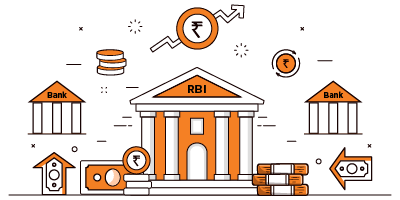What is the Central Bank and Its Functions?
The Central Bank in India is a national authority. It is responsible for managing inflation, conducting monetary policy, and maintaining the financial and economic stability of the country. Furthermore, it is responsible for issuing the local currency, overseeing the monetary policies, and maintaining the level of liquidity and inflation. Moreover, it controls the liquidity of being responsible for the issuance of the currency in India. Additionally, It also regulates the interest rates for all the banks.
Is Central Bank and RBI the Same?
Yes, it is known as The Reserve Bank of India (RBI) which makes it the same institution. RBI is in charge of India’s monetary policy and economic growth.
Is the Central Bank a Nationalised Bank?
The Central bank of India (RBI) became the first nationalized bank. Before nationalization, all banks in India were under the private sector. The RBI became the first nationalized public sector bank.
Does Every Country Have a Central Bank?
Most of the world’s countries do have central banks with the exception of a few countries. However, not all central banks in the world are independent. It helps their countries from falling into inflation by formulating and regulating the monetary policy.
Do Central Banks Lend Money?
RBI lends money to its member commercial banks. The loan is made in case the banks fell into liquidity issues and are unable to cover their short-term needs. The commercial banks can also receive a loan from the RBI for long term investments. These loans could be to fund the investments that the bank cannot afford with its own capital.
Can We Deposit or Withdraw Money From the Central Bank?
It does not serve the end customers. It serves only the local economy, government, and commercial banks. As an end-user, you cannot deposit or withdraw from the RBI but your commercial bank can perform this with the country’s central bank.
Why Do Banks Deposit Funds at the Central Bank?
The commercial bank needs to deposit funds with The RBI as a part of the Reserves. These reserves act as security for the commercial banks to ensure liquidity in the event of financial instability.
Know the Highest FD Rates in India.


















Show comments